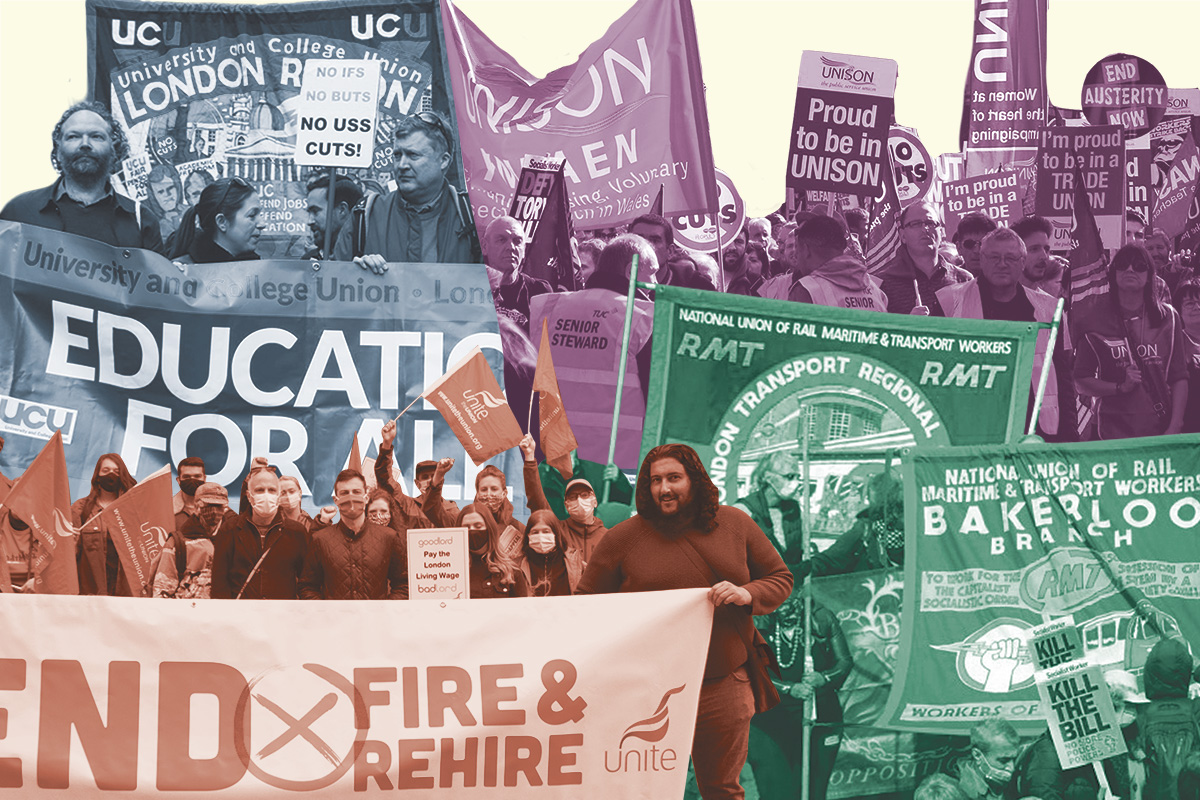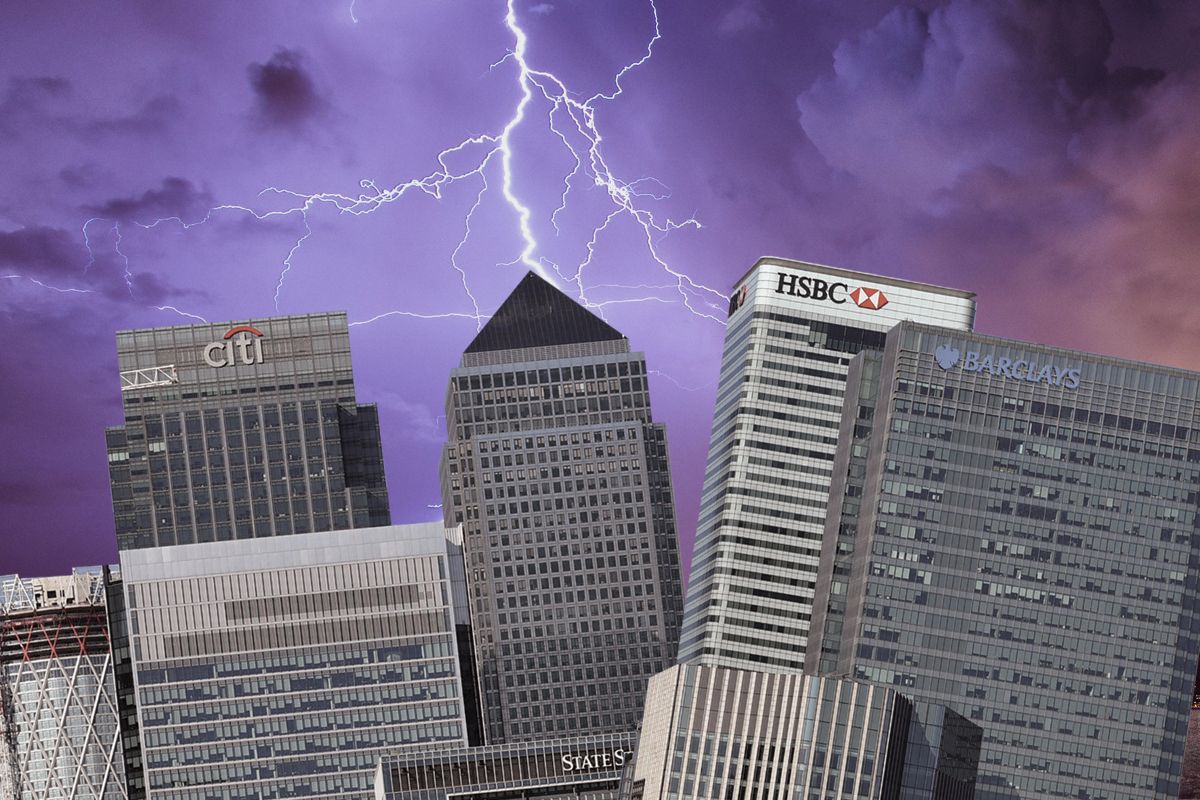The latest forecasts from the Bank of England for the year ahead are for inflation to surge and the economy to contract: a dangerous double-whammy of ‘stagflation’. Workers must organise and fight back with militant action and socialist policies.
Only last month, Boris Johnson triumphantly declared that Britain had the “fastest growing economy in the G7”. Hurrah! So imagine his dismay when the IMF piped up to predict that UK growth in 2023 will be the slowest of all the G7. How quickly things can turn into their opposites.
And with inflation in Britain forecast to be the highest in any of the advanced capitalist countries in the coming year, the only thing that will be growing the fastest is workers’ bills.
Far from the image of a strong ‘Global Britain’ as painted by the Tories, the reality is that British capitalism is a third-rate power, in a state of senile decay.
For decades the British capitalist class has abandoned industry in favour of a rentier, low-wage economy, based on financial services and speculation. Now the chickens are coming home to roost, as the UK economy is battered by the global crisis of capitalism.
Gloomy outlook

The storm clouds are gathering from all directions. The most recent figures from the Office of National Statistics (ONS) put inflation at 7% in March. Yet GDP growth slowed to just 0.1% in February. Meanwhile, real wages – taking into account inflation – contracted by 1%.
With growth projected to remain at just 0.1% over the next few months, many analysts are already talking about Britain entering into recession in the coming period.
The Bank of England (BoE) added to this gloomy outlook with their latest forecasts, released today.
These predict that inflation will peak at 10% later this year, the highest level in four decades. The UK economy, meanwhile, is set to contract by 1% in the fourth quarter of 2022, leaving the country teetering on the edge of an official recession.
Just the slightest shock could tip the economy over the edge – and there are plenty of potential bumps on the road ahead.
What is clear is that Britain – along with the rest of the world – has already entered into a period of so-called ‘stagflation’: stagnant growth, combined with high inflation. And as usual, it is the working class who will be forced to bear the brunt.
Catastrophe ahead

Already, the cost-of-living catastrophe is hammering workers’ living standards. But this is set to intensify, as the bosses look to protect their profits by passing on increased input costs to workers in the form of higher prices and lower real wages.
One-in-eight adults in Britain have already gone without heating, water, or electricity in the past three months, according to the Money Advice Trust. And the BoE is estimating that energy prices will jump by another 40% in October, when the consumer price cap is lifted again.
According to the ONS, meanwhile, close to one-in-five people said they had to borrow more money in order to make ends meet. And with prices expected to climb higher and higher, this will only get worse.
The Bank of England’s decision today to increase interest rates to 1% will add fuel to the fire, however, pushing up borrowing costs for highly-indebted households and small businesses.
And with interest rates set to rise even further in the months ahead, millions could be plunged into bankruptcy and unemployment, as the UK central bank engineers a slowdown in order to ‘cool’ the economy, reduce demand, and tame inflation.
Yet whilst millions are feeling the squeeze, big business bosses are getting richer and richer.
Two of the ‘Big Six’ energy companies made over a billion pounds in profit last year, whilst their customers struggled to keep warm. Energy monopolies such as Shell are recording record profits. And the CEO of fossil fuel giant BP took home a whopping £4.5 million in pay last year, presumably enough to keep his mansion nice and toasty.
Prepare for battle

The Tories’ offer of a £150 council tax rebate to alleviate rising living costs will barely scratch the surface. Starmer’s Labour similarly has no solutions, other than feebly calling for a timid windfall tax on the energy monopolies.
Both parties agree, however, that hundreds of millions of pounds must be spent to send arms to Ukraine, in the interests of Western imperialism.
To prevent workers from being ruined by rising prices, therefore, the trade unions must step up. Only militant coordinated action will be enough to win inflation-busting pay rises.
Already, the RMT are showing the way forward, balloting 40,000 members for a potential national rail strike to confront the bosses’ offensive.
As the struggle heats up, and more and more workers are forced into action, this movement must be generalised into an all-out war against the capitalist system.
Only by replacing the anarchy of the market with a socialist planned economy can we consign the scourge of stagflation to the dustbin of history.






